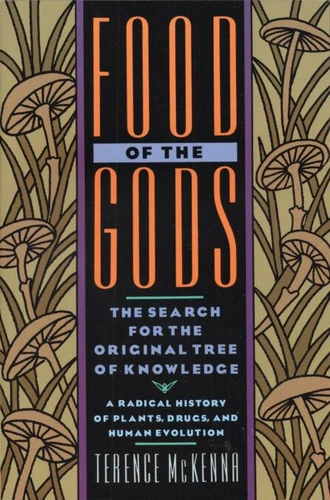Food of the Gods
Par :Formats :
Actuellement indisponible
Cet article est actuellement indisponible, il ne peut pas être commandé sur notre site pour le moment. Nous vous invitons à vous inscrire à l'alerte disponibilité, vous recevrez un e-mail dès que cet ouvrage sera à nouveau disponible.
Disponible dans votre compte client Decitre ou Furet du Nord dès validation de votre commande. Le format ePub protégé est :
- Compatible avec une lecture sur My Vivlio (smartphone, tablette, ordinateur)
- Compatible avec une lecture sur liseuses Vivlio
- Pour les liseuses autres que Vivlio, vous devez utiliser le logiciel Adobe Digital Edition. Non compatible avec la lecture sur les liseuses Kindle, Remarkable et Sony
- Non compatible avec un achat hors France métropolitaine
 , qui est-ce ?
, qui est-ce ?Notre partenaire de plateforme de lecture numérique où vous retrouverez l'ensemble de vos ebooks gratuitement
Pour en savoir plus sur nos ebooks, consultez notre aide en ligne ici
- Nombre de pages336
- FormatePub
- ISBN8217302901
- EAN9798217302901
- Date de parution17/02/2026
- Protection num.Adobe DRM
- Infos supplémentairesepub
- ÉditeurBantam
Résumé
"Deserves to be the modern classic on mind-altering drugs and hallucinogens."-The Washington Post Ethnobotanist Terence Mckenna, hailed by Tom Robbins as "the most important-and most entertaining-visionary scholar in America, " explores humanity's symbiotic relationship with spirits, tobacco, marijuana, opium, psilocybin, and more, from prehistoric times to today. Why, as a species, are humans so fascinated by altered states of consciousness? Can altered states reveal something to us about our origins and our place in nature? In Food of the Gods, Terence McKenna's research on man's ancient relationship with chemicals opens a doorway to the divine, and perhaps a solution for saving our troubled world.
McKenna provides a revisionist look at the historical role of drugs in the East and the West, from ancient spice, sugar, and rum trades to marijuana, cocaine, synthetics, and even television-illustrating the human desire for the "food of the gods" and the powerful potential to replace abuse of illegal drugs with a shamanic understanding, insistence on community, reverence for nature, and increased self-awareness.
McKenna provides a revisionist look at the historical role of drugs in the East and the West, from ancient spice, sugar, and rum trades to marijuana, cocaine, synthetics, and even television-illustrating the human desire for the "food of the gods" and the powerful potential to replace abuse of illegal drugs with a shamanic understanding, insistence on community, reverence for nature, and increased self-awareness.
"Deserves to be the modern classic on mind-altering drugs and hallucinogens."-The Washington Post Ethnobotanist Terence Mckenna, hailed by Tom Robbins as "the most important-and most entertaining-visionary scholar in America, " explores humanity's symbiotic relationship with spirits, tobacco, marijuana, opium, psilocybin, and more, from prehistoric times to today. Why, as a species, are humans so fascinated by altered states of consciousness? Can altered states reveal something to us about our origins and our place in nature? In Food of the Gods, Terence McKenna's research on man's ancient relationship with chemicals opens a doorway to the divine, and perhaps a solution for saving our troubled world.
McKenna provides a revisionist look at the historical role of drugs in the East and the West, from ancient spice, sugar, and rum trades to marijuana, cocaine, synthetics, and even television-illustrating the human desire for the "food of the gods" and the powerful potential to replace abuse of illegal drugs with a shamanic understanding, insistence on community, reverence for nature, and increased self-awareness.
McKenna provides a revisionist look at the historical role of drugs in the East and the West, from ancient spice, sugar, and rum trades to marijuana, cocaine, synthetics, and even television-illustrating the human desire for the "food of the gods" and the powerful potential to replace abuse of illegal drugs with a shamanic understanding, insistence on community, reverence for nature, and increased self-awareness.



